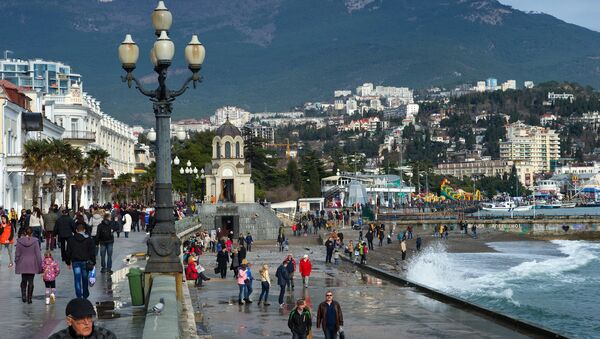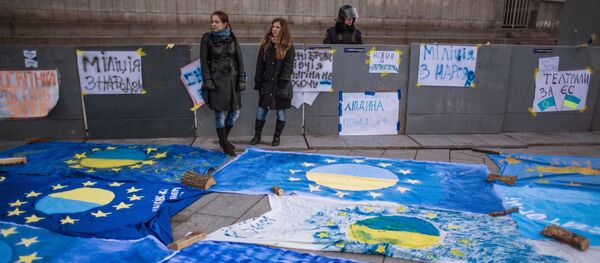Various international powers, including Russia, had an agreement with the Ukrainian opposition that the continuous violence would end, that there would be diminution of presidential powers, earlier elections would be held and there would be increased regional autonomy. However, on February 22, 2014, the country's parliament was driven out by a coup, and neo-Nazis seized power forcing Ukrainian President Victor Yanukovych to flee.
"It started on the 22nd of February with the coup, not on the 23d with Putin's reaction," McGovern said.
According to the political activist, geopolitical interests were clearly involved, and NATO's eastward expansion partially prompted Crimea's reunion with Russia. McGovern added that the crisis in Ukraine has been used by the Pentagon to escalate troops, and increase war exercises into the region, with the excuse that countries on the western border of Russia must be protected from "Russian aggression."
What's more important, McGovern said, is that the peninsula has been part of Russia for centuries, since the time of Catherine the Great. The peninsula is ethnically Russian, not merely Russian-speaking, he asserts. In 1954 Nikita Khrushchev, who came to power after Stalin's death, gave Crimea to Ukraine as a token gift by, "signing a piece of paper," given that, at the time, Russia and Ukraine were merely parts of the 15 republics that made up the USSR.
The referendum in Crimea indicated that a very large part of the peninsula's population sought to reunite with Russia.
"If this came as a surprise to anybody, that person doesn't know much about Russian history, or Soviet history, or the balance of power in central Europe" McGovern said.




